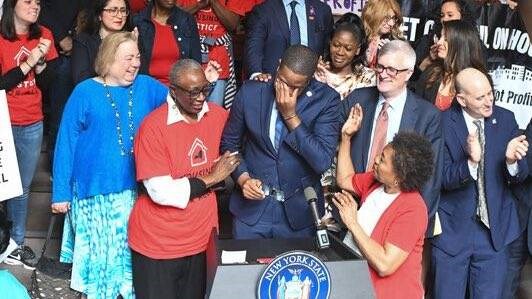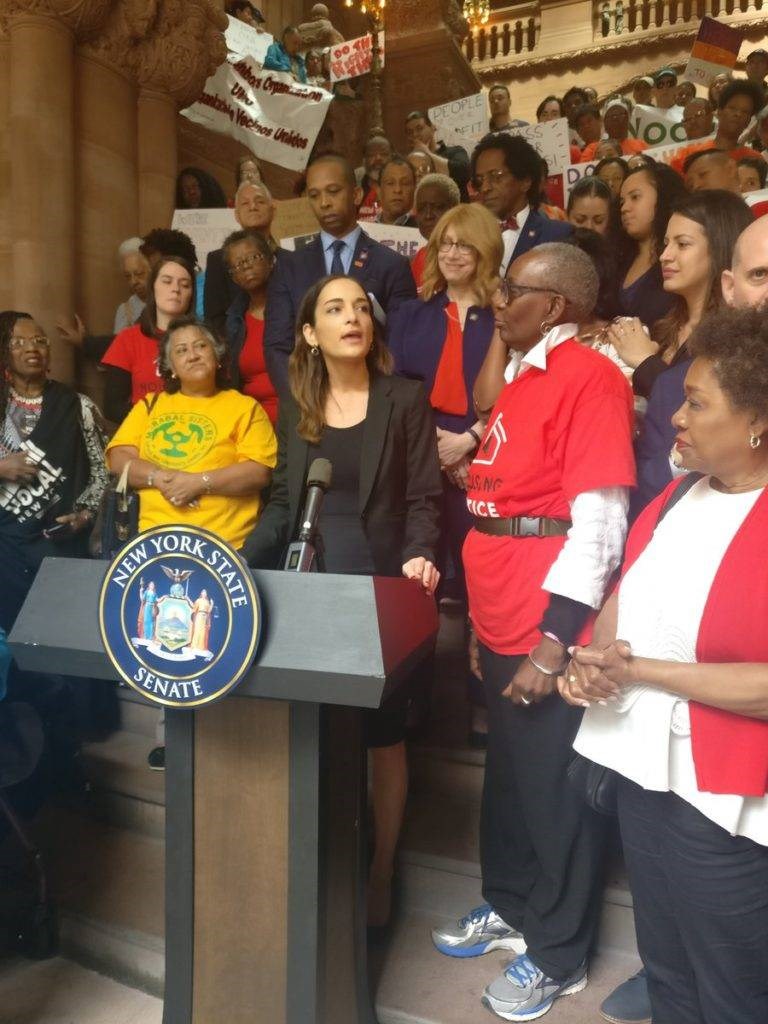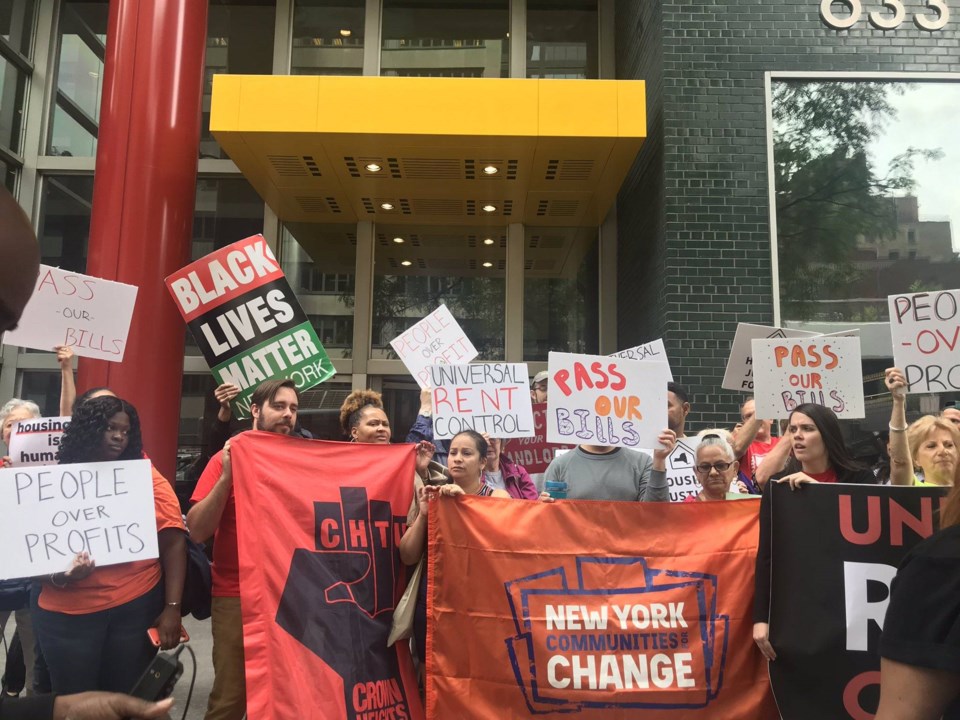The New York State legislature passed on Friday "the strongest affordable housing and tenant protections legislation in state history," which include the repeal of high-rent vacancy deregulation, "vacancy bonus" and "longevity bonus" provisions, as well as reforms regarding preferential rent and potential rent increases for major capital improvements.
"By closing deregulatory loopholes and adding critical protections from eviction for non-regulated tenants, we are acting to empower working families and the most vulnerable renters to stay in their homes and live without the constant fear of displacement," said Bushwick Senator Julia Salazar of the 18th District.
The Democratic-run State Senate passed "The Housing Stability and Tenant Protection Act of 2019" by 36-26 vote Friday afternoon, followed by the Democratic-led State Assembly that issued a decisive 95-42 vote.
With the current rent laws due to expire Saturday, Governor Andrew Cuomo rushed to sign the legislation into law moments after it was passed in both chambers to avoid "the chaos and uncertainty that a lapse in these protections would have caused for millions of New Yorkers."
"I'm confident the measure passed today is the strongest possible set of reforms that the legislature was able to pass and are a major step forward for tenants across New York," said Cuomo.
The reforms come after months of deliberation and a series of hearings across New York State on rent regulation and tenant protections, including one in Crown Heights last month, to give tenants, property owners and stakeholders an opportunity to weigh in on how the final legislation should serve New Yorkers.

"This bill is the strongest package of tenant protections New York has seen in almost a century," said State Senator Zellnor Myrie of the 20th District, which includes Crown Heights, Prospect Heights, East Flatbush and Brownsville. "For decades, our communities have lost hundreds of thousands of rent-regulated units, but with this legislation, we are putting power back in the hands of tenants."
Pro-tenant advocacy groups like Housing Justice for All and The Legal Aid Society celebrated the rent reforms as a momentous, but partial victory.
"By passing this legislation, we are finally delivering equity and justice to our clients and all low-income New Yorkers," said Janet Sabel, attorney-in-chief of The Legal Aid Society, in a statement. "We still have work to do in order to truly enact Universal Rent Control in New York State. We will continue fighting for essential legislation, like the Good Cause eviction bill, to protect the most vulnerable tenants from being pushed out of their homes."

Sponsored by Salazar, the Good Cause Eviction bill aims to protect tenants from eviction and prohibits the non-renewal of leases without good cause. The legislation is not included in the new rent reforms, but Salazar vowed to continue the fight.
"My own firsthand experiences, as a tenant previously in an apartment owned by a neglectful landlord and abusive management company, and the experiences of millions of tenants across the state have been the strongest motivation for me to advocate for this historic rent package," said Salazar. "I'm committed to continuing this fight until every tenant in New York is secure."
Below are some of the key aspects of "The Housing Stability and Tenant Protection Act of 2019" (for a complete overview of all provisions and changes, go here):
Repeal vacancy decontrol and high-income deregulation
The new law eliminates the vacancy decontrol, which previously allowed landlords to remove units from rent stabilization when the rent crosses a statutory high-rent threshold and the unit becomes vacant. High-income deregulation, which previously allowed the removal of a unit from rent stabilization when the tenant's income was $200,000 or higher in the preceding two years, also will be nixed.
Reform owner use exception to rent regulation
Under the new legislation, the use of the "owner use" exception will be limited to a single unit and will require that the owner or their immediate family use the unit as their primary residence; the new provision will protect long-term tenants from eviction under this exception by lowering the current length of tenancy required to be protected from eviction to 15 years.
Repeal Vacancy bonus and longevity bonus
The "vacancy bonus," which permitted a property owner to raise rents as much as 20 percent each time a unit becomes vacant, will be ended under the new laws, as will be the "longevity bonus," which allowed rents to be raised by additional amounts based on the duration of the previous tenancy.
Make preferential rents the base rent for lease renewal increases
Reform rent increases for Major Capital Improvements (MCIs)
The annual increase that landlords will be allowed to charge tenants for MCIS will be lowered from six percent to two percent in New York City; MCI increases will be eliminated after 30 years, instead of being permanent as it was previously the case. The new provisions also significantly tighten the rules governing what spending may qualify for MCI increases and the enforcement of those rules by requiring that 25 percent of MCIs will be inspected and audited.




